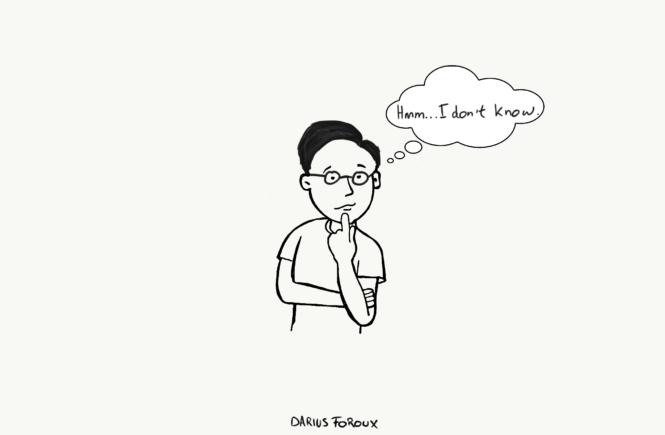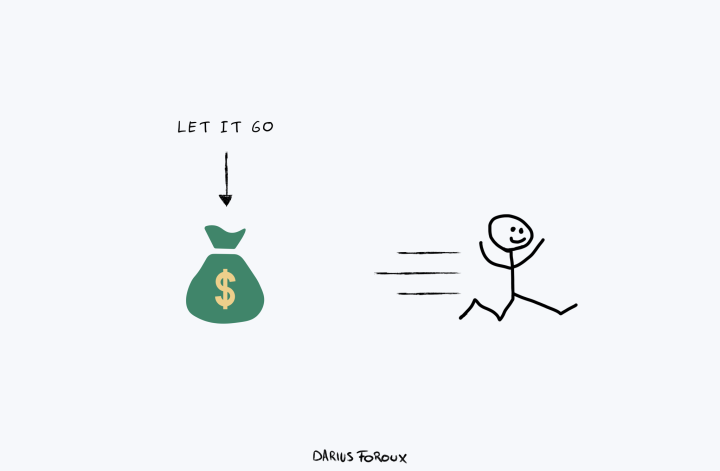Jesse Livermore is considered the best stock trader in history. He was the main character of one of the most famous books on trading, Reminiscences of a Stock Operator, published in 1923.
Livermore is mostly known for taking short positions before the 1906 San Francisco earthquake and before the Wall Street Crash of 1929. Those two trades made him a fortune and gave him the respect he still has by the investment community.
But that’s not the only reason Livermore is celebrated today. He was a true pioneer of stock trading, just like Benjamin Graham was of value investing (the investment philosophy that Warren Buffett relies on).
Livermore brought his profession to a new level in the early 21st century by dedicating his whole life to trading. His habits were unique for his time.
He had laser focus from 9.30 AM, when the market opened, until 4 PM when the final bell rang. In an interview found in the latest edition of his book, How to Trade In Stocks, he gave the following advice to traders:
“Keep stress at bay—act in all ways to keep the mind clear and your judgment correct. I did all I could to achieve this in my physical life by going to bed early, eating and drinking lightly, taking exercise, standing upright at the stock ticker, standing while on the telephone, and demanding silence in the office. I spoke to no one on my way to work and kept silent about my stock market actions.”
But this doesn’t mean he followed his own advice all the time. While he was a successful trader, he also went bankrupt three times. He also suffered from depression, and eventually took his own life in 1940.
I’ve spent a long time studying the life and philosophy of Livermore. As a stock investor, I identify most with value investing, but I believe it’s important to study speculators as well. That’s how I found Livermore several years ago.
The interesting thing is that many traders are still influenced by Livermore. There’s a series of books about successful traders called Stock Market Wizards by Jack D. Schwager. Those books show how many successful modern traders relied on Livermore’s ideas.
And people are still applying his ideas to stocks, futures, commodities, and even cryptocurrencies. While you might not be a trader; there’s one thing Livermore did that’s useful for every single person. And that is to add more solitude to your life.
Solitude encourages independent thinking
A big part of Livermore’s philosophy was to rely on your own thinking. He always wanted to make his own decisions and hated stock tips that came from others. He wanted to take full responsibility for his actions and make his own decisions. He said:
“My main objective was to protect myself from unwelcomed bad influences—in particular I was trying to avoid anyone who might be inclined to offer me assistance in trading the stock market by giving me some information—in the form of a tip. Tips were the one thing that had done me the most harm in trading the stock market.”
Other people influence our opinions and thoughts all the time. And as a result, our decisions and actions are also influenced by others.
Becoming an independent thinker is one of the most important things you can do in life. When you think for yourself, you’re always open to other people’s opinions, knowledge, and input—but you always form your final judgment.
It gives you a sense of freedom and personal responsibility. When you make a decision that doesn’t turn out great, you don’t blame others. You also don’t blame yourself. You simply made a bad decision. But at least you did your own thinking, which will help you with your next decision.
Solitude helps you focus on things that matter
Thinking takes time and energy. It requires going back and forth on your ideas. It requires looking at problems from different perspectives. But we hardly ever make time for thinking. Most of us are constantly interrupted, so we don’t even have the chance to think. We just decide. No wonder we make so many bad choices.
That’s why Livermore spent so much time in solitude. “I needed continuity of thought. I needed to be able to have more than 15 minutes of uninterrupted thought,” he said. Livermore even took rigorous steps to avoid people on his commute to Wall Street:
“I either travel to the office by car in silence and isolation or by my boat in the better weather, also in silence, with no other passengers—this gives me a chance to read the newspaper and plan my day. If I travel by myself I can continue with my thinking without any interference in implementing my plan for the day.”
The key to becoming a better thinker and decision-maker is to give yourself more time. It’s not complicated. We just have to spend more time alone. But in our fast-paced world, we value quickness over quality. We’re always surrounded by other people’s voices; whether that’s a friend, during a meeting at work, or when we’re listening to someone talking on a podcast or audiobook.
We often can’t solve our challenges because we don’t spend enough thinking about the solution. We either act too quickly or don’t have the mental energy to spend time on our challenges.
“How much is too much alone time?”
Though solitude is important, we shouldn’t overdo it. Research shows that loneliness increases the probability of cardiovascular diseases. And a New Zealand study that followed 1,037 individuals from birth to age 26 also concluded that social isolation negatively impacts overall health.
This could have lead to Livermore’s downfall as well. He struggled with depression most of his life, and he made things worse by becoming a recluse. As social creatures, we should avoid that fate.
That’s why I suggest short-term solitude. But how do you do that? First, figure out how much time alone is beneficial to you, personally. You can learn this by asking yourself the following questions:
- What happens if I’m surrounded by people all the time?
- How much time (in hours, days, weeks, etc.) am I okay being surrounded by people?
- What happens if I’m alone all day?
- How much time am I okay being totally alone?
Figure out how you respond in certain situations. And use your answers to figure out how much time alone you need. For example, I use my morning ritual and evening ritual as my alone-time. No social media, no meetings, no calls, etc.
Just yourself, your thoughts, and a journal or a good book. It takes some time and experimentation to figure out how much solitude is beneficial. After a period of being surrounded by people, I often like to spend one or two days fully alone. Since I’m mostly an introvert, that works well.
Another effective method is to challenge yourself by doing the opposite of what you usually do. If you’re an extrovert, just spend an afternoon alone. If you’re extremely introverted, spend less time alone and go out more with family, friends, or acquaintances. There’s no one-size-fits-all solution.
Solitude makes your judgment authentic
Give yourself enough uninterrupted time and space to think. We have to process a lot of external information that influences us. There’s nothing we can do to change external influences if we want to be a part of society.
By adding more solitude and listening to our own thoughts, we can come up with authentic ideas and judgments that are a product of the outer world and the inner world.
That process could be as simple as spending at least 2 hours alone per week with your notebook. Just sit and try to work through your challenges. Make notes. Think about different scenarios.
And most importantly: Rely on your own judgment. It doesn’t matter how good your judgment is—what matters is that it’s actually yours.




